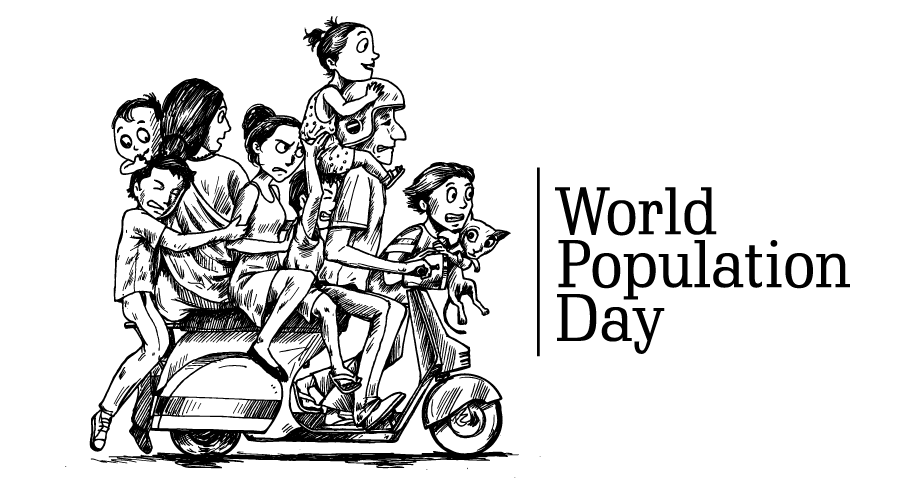

World Population Day, celebrated on July 11, focuses on the impact of overpopulation on human health. The world population is increasing at an alarming rate! India is anticipated to have the highest global population by 2050. The quality of life is lowered by overpopulation, which can also have an impact on other social and environmental factors. The effects of overpopulation include malnutrition, pollution, congested living conditions, and a lack of health care facilities, all of which increase a community’s risk of infectious diseases.
This year, World Population Day focuses on numerous issues pertaining to overpopulation and encourages necessary efforts to address the problem.
Impact of Overpopulation on Human Health
The majority of people are aware of the negative effects of overpopulation on the environment and society but not its negative effects on health. What will our country’s future look like if this trend continues?
Due to issues like urban overpopulation and environmental changes brought on by the population increase, many infectious diseases have started to spread. Let’s discuss the effects of overpopulation on human health:
1. Increased Risk of Infections
Infections and overpopulation are closely related. The risk to human health increases with population density because airborne infections can spread more quickly. Numerous infectious diseases have emerged as a result of concerns like urban overcrowding and environmental changes brought on by population growth. Increased antibiotic resistance turns out to be an unanticipated issue for diseases like:
- Tuberculosis
- Malaria
- Cholera
- Dengue fever
2. Rise of Water Contaminated Diseases
Polluted water resources are a result of overpopulation. Diseases caused by contaminated water cost the lives of people every year. In a more crowded environment, the viruses propagate more quickly, allowing dangerous mutations to proliferate and contaminate the water supply.
3. Respiratory Problems
There is a rising worry about the effects of overpopulation brought on by increased traffic on the health of those who commute by car. Children are more affected than adults by air pollution. As a result of today’s deteriorating air quality, the majority of people experience respiratory issues like:
- Asthma
- Lung cancer
- Chest pain
- Congestion
- Throat inflammation
- Cardiovascular disease
- Respiratory diseases
4. Increased Risk of Skin Cancer
Population growth has also contributed to the thinning of the ozone layer. Increased exposure from the sun’s damaging ultraviolet (UV) radiation may result in skin conditions like skin cancer and early aging of the skin. The effects of UV radiation include cataracts and blindness. Most significantly, it impairs the immunological system of humans.
5. Various Other Health Hazards
People are moving to the cities in larger numbers every day in search of jobs and wealth. Concentrated energy consumption increases air pollution, which has a significant impact of overpopulation on human health and lead levels in metropolitan air are elevated due to automotive emissions. Numerous health risks, including cancer, neurological disorders, congenital malformations, etc., are caused by large amounts of uncollected garbage.
All other significant issues are primarily caused by overpopulation. Governments are increasingly unable to expand their health care facilities and systems due to population increase.
Measures to Take
Some of these measures which can help minimize the effects of overpopulation include:
- Establishing laws and regulations governing birth control.
- Educating the public about family planning.
- Making birth control options available to everyone.
- Spreading awareness of population growth.
Conclusion
A major global issue and the cause of many health problems is population growth. The problem needs to be addressed and appropriate steps need to be taken to rectify it. On this World Population Day, let us strive to achieve these goals. This could help in ending the vicious cycle of population growth and rising health concerns.




